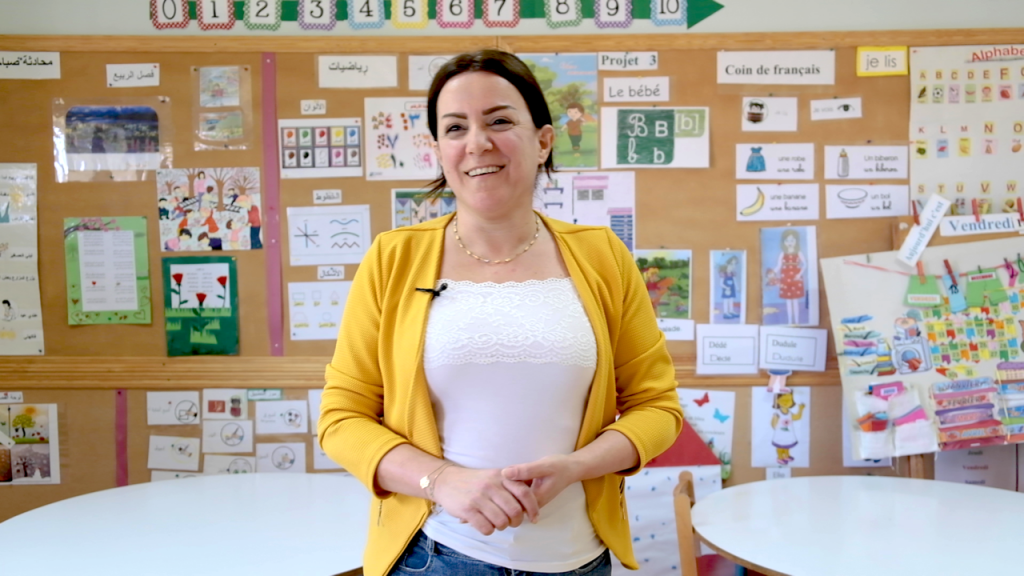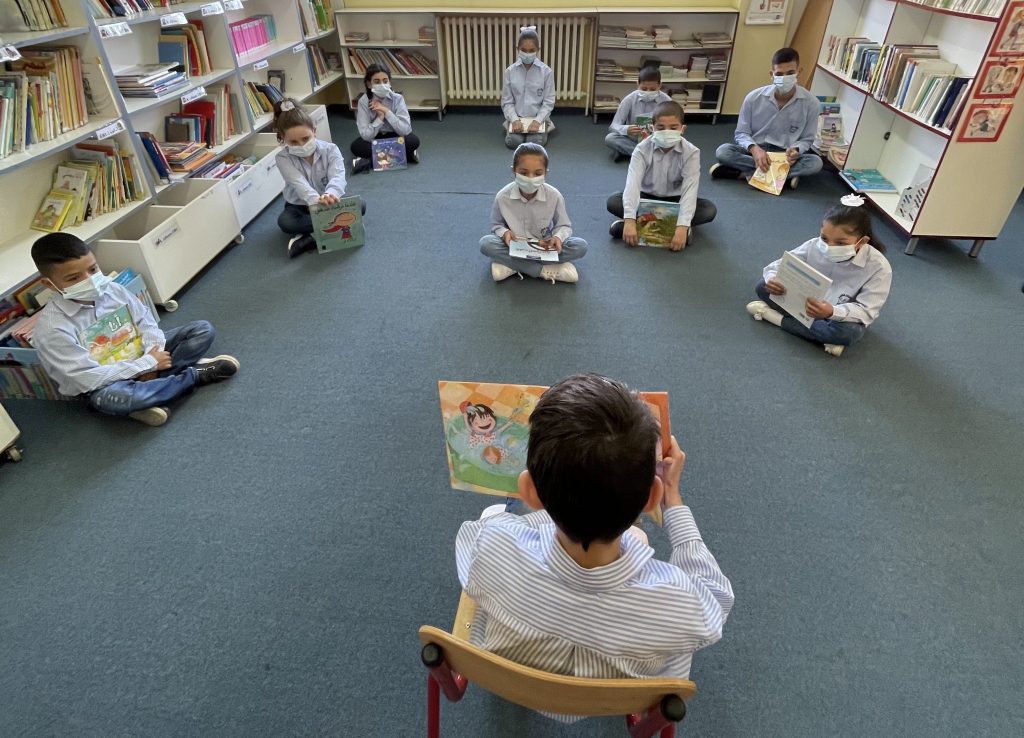-
What We Do
- WHERE WE WORK
-
About Us
 Welcome Message from Carol Jenkins
Welcome Message from Carol JenkinsFor more than 90 years, World Learning has equipped individuals and institutions to address the world’s most pressing problems. We believe that, working together with our partners, we can change this world for the better.
On my travels, I’ve had the opportunity to meet with many of those who have joined us in this mission. In Baghdad, we’ve trained more than 2,300 Iraqi youth who are already giving back at home. In London, our partners in the TAAP Initiative strongly believe that we are all responsible to practice inclusion. And in Vermont, our Experiment in International Living and School for International Training participants prove every day that they have the tools and the determination to change the world.
Please join us in our pursuit of a more peaceful and just world.
- Get Involved
Media Center > Story
How Lebanon’s Arabic Language Teachers Use Read-Aloud Sessions to Instill a Love of Reading
August 6, 2021

At Jezzine Primary School in the mountains of south Lebanon, first-grade Arabic language teacher Mary Bou-Rached holds weekly read-aloud sessions for students. She picks two students every week to read stories and ask their classmates comprehension questions.
With 186 students, Jezzine Primary School is one of 887 primary public schools in Lebanon receiving support from USAID’s education sector programs Quality Instruction Towards Access and Basic Education Improvement (QITABI) 1 and 2. The school is among 30 inclusive schools selected by Lebanon’s Ministry of Education to provide tailored support to students with special educational needs.
“The read-aloud sessions invite students to express themselves, interact with other students, and actively participate during class,” says Bou-Rached. “I was surprised and pleased to see that struggling readers jumped at the opportunity to read aloud during class.”
To ensure that each primary student receives the support needed to improve their reading skills, USAID has furnished a library inside each classroom. Each library includes read-aloud books and leveled reading books selected by experts to address all reading levels.
QITABI’s literacy specialists say reading aloud is important for reading success. It provides children with a demonstration of reading fluency, builds the listeners’ interest in books, and improves comprehension skills. Reading aloud encourages children from an early age to adopt reading as a lifelong learning activity.
“My students look forward every week to participate in the read-aloud sessions,” says Olga El Helou, a second-and third-grade Arabic language teacher at Jezzine Primary School. “They love to pick storybooks from QITABI’s classroom library and play the role of the storyteller in reading aloud to their classmates.”

Under the QITABI 2 program, each classroom also received a set of interactive e-storybooks that give students the opportunity to hear correct pronunciation by native and professional speakers.
USAID provides well-rounded teacher support that ensures Arabic language teachers follow international best practices. The support consists of teacher training on a balanced literacy approach, coaching by trained mentors that observe teachers during classroom sessions, and in-school support by trained learning facilitators.
In collaboration with Lebanon’s Ministry of Education and the Center for Educational Research and Development, the USAID QITABI program impacts the literacy and numeracy teaching and learning environments for more than 338,000 primary school students in grades 1 to 6.
USAID is offering the resources that Arabic language teachers need for reading success. Thus far, QITABI has provided more than 5,000 classroom libraries, with a total of more than 550,000 leveled reading books, 75,000 read-aloud books, and 25,000 e-stories.





